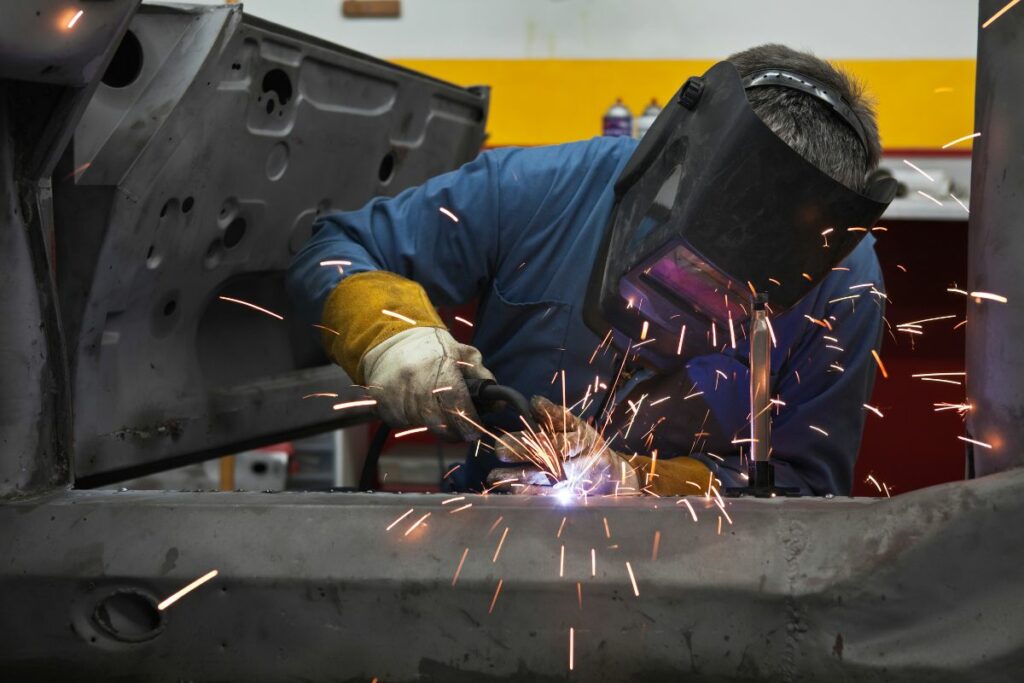
Most employers in New zealand require certified and qualified welders to catch the open opportunities as New zealand is a growing country that has multiple competing companies in different fields, so there is no place for unqualified employees.
What is the required level of qualification to become a qualified welder?
This level is usually for the beginners in which the student will learn about the basic welding fundamentals, safety fundamentals of the welding workplace and personnel involved in welding in addition to practical workmanship delivered by experienced welders.
This level is taught usually in workshops under supervision of experienced tutors and qualified welders. This level teaches the students to become more skilful and specialised in a safe, responsible way. After completion of this level, successful graduates will be able to start welding and fabrication careers in New Zealand.
As a beginner, you may hear a lot about welding trade careers and how it bring a lot of money to the approved welding professionals but one second, you have to think about the following issues before taking the decision to commence the welding course as you have to keep in mind that welding career is not for everyone.
Where the student should realise the environment for future career to be sure that he will be comfortable with it or not. The welder becomes liable to ultraviolet light, welding fumes, risk of electrical shocks, risk of fire and burns, risk of accidents in under construction sites that is why, you have to search this career very well and if possible , you should attend short course about welding at the beginning and also if possible to go and watch welding at any site near by you.
There are many industries requiring qualified welders which may be suitable for some and not suitable for others. For example, the construction of new oil and gas projects may become suitable for professionals who can keep away from their houses for some time which may be long for weeks or months but this may be not suitable for womens who have family and childrens. Stationary workplaces like the automotive industry are suitable for many.
As a qualified welder, you should know about the different welding processes and the different industries requiring that type of welding processes but you shall become specialised in certain welding processes and certain types of industries. For example, I can be a GMAW welder working in the automotive industry or TIG welder working in the Construction industry and so on as the most successful people are the ones who are specialised in one area.
As a new future welder, you have to realise that there are three common materials that are commonly welded in most of industries:
These materials are broadly used in most welding disciplines that is why it provides the majority of work opportunities but it represents the dirtier work among the other materials.
These materials enter in construction of most of the food and pharmaceutical industries and they are hard to be welded requiring higher skilled welders. That is why it represents lower work opportunities as compared to carbon steel materials but it has a good return on welders working with them.
These materials are not popular like carbon steels and stainless steels and they are considered the most challenging material in welding as it requires certain welding techniques.
After figuring out the previous issues, now you know what is your preffered indusry, welding discipline that you need to go through whether manual metal arc welding MMA, gas metal arc welding GMAW or Tungsten inert gas welding TIG where these welding disciplines are the common ones used in most of welding industries and finally you will be able to know the type of materials that you need to know more about and learn how to weld.
You have to select very well the certification academy or welding school before starting your welding course and there are some factors to be taken in to consideration when selecting the certification school:
So, now you are able to take your decision of starting your welding course 🙂